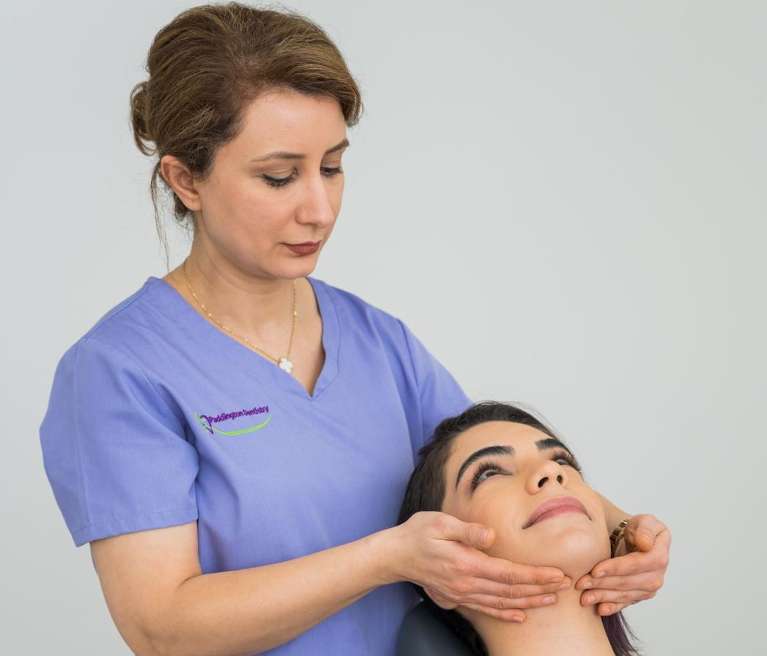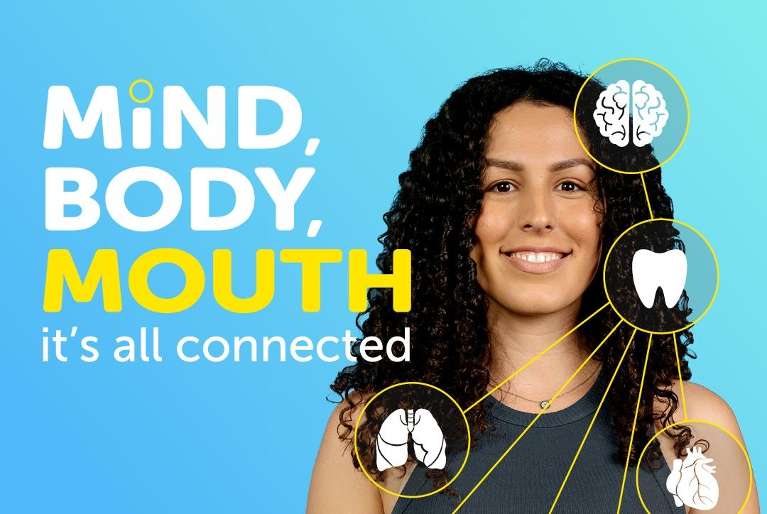
The Silent Threat: Exploring the Connection Between Oral Health and Cancer, and How Regular Checkups Can Save Lives
Did you know that your oral health might be linked to a silent threat? Research has shown a surprising connection between oral health and cancer, highlighting the importance of regular checkups. In this article, we will explore this vital link and shed light on how proactive dental care can potentially save lives.
Oral health goes beyond just having strong teeth and fresh breath. It plays a significant role in our overall well-being, and recent studies have implicated poor oral health as a potential risk factor for certain types of cancer. Understanding this connection is crucial for everyone, as it could potentially lead to early detection and better outcomes.
Regular dental checkups, including thorough oral examinations, can help dentists identify any potential issues or abnormalities that may be indicative of underlying health problems, such as oral cancer. By detecting these warning signs early on, dental professionals can intervene, refer patients for further testing, and potentially save lives.
In this blog, we will delve into the research that underscores the oral health-cancer relationship and explore why regular dental checkups should be a vital part of everyone's healthcare routine. Stay tuned to learn more about this silent threat and how you can prioritize your oral health to protect yourself against cancer.
Understanding the link between oral health and cancer
Oral health goes beyond just having strong teeth and fresh breath. It plays a significant role in our overall well-being, and recent studies have implicated poor oral health as a potential risk factor for certain types of cancer. Understanding this connection is crucial for everyone, as it could potentially lead to early detection and better outcomes.
One of the key factors linking oral health and cancer is inflammation. Chronic inflammation in the mouth, often caused by gum disease or other oral infections, can contribute to the development of cancer cells. Additionally, certain bacteria present in the mouth have been found to be associated with an increased risk of developing oral cancer.
Maintaining good oral hygiene practices, such as regular brushing and flossing, can help reduce inflammation and lower the risk of cancer. However, it is important to remember that oral health is not solely determined by our brushing habits. Regular dental checkups play a crucial role in detecting any potential issues early on, allowing for timely intervention and treatment.
Common types of cancer linked to poor oral health:
While poor oral health can potentially increase the risk of several types of cancer, some cancers have been found to have a stronger association with oral health issues. Oral cancer, which includes cancers of the mouth, tongue, lips, and throat, is the most obvious connection. Studies have shown that individuals with chronic gum disease or other oral infections have a higher likelihood of developing oral cancer.
Apart from oral cancer, there is also evidence linking poor oral health to an increased risk of pancreatic cancer, esophageal cancer, and certain types of head and neck cancers. The exact mechanisms behind these connections are still being studied, but early research suggests that chronic inflammation and the spread of harmful bacteria from the oral cavity to other parts of the body may play a role.
It is important to note that while oral health issues may increase the risk of these cancers, they are not the sole cause. Other risk factors, such as tobacco and alcohol use, poor diet, and genetic predisposition, also contribute to the development of these cancers. However, maintaining good oral health can help reduce the overall risk and potentially improve outcomes.
Risk factors and causes of oral health-related cancer
Several risk factors contribute to the development of oral health-related cancer. The most common risk factors include tobacco use, heavy alcohol consumption, poor nutrition, and certain viral infections, such as human papillomavirus (HPV). These risk factors can increase the likelihood of developing oral cancer, especially when combined with poor oral hygiene practices.
Tobacco use, including smoking cigarettes, cigars, or pipes, is one of the leading causes of oral health-related cancer. The harmful chemicals present in tobacco products can damage the cells in the mouth and throat, leading to the development of cancerous tumors. Heavy alcohol consumption further increases the risk, as it can irritate the mouth and throat, making them more susceptible to cancerous growths.
In recent years, the role of HPV in oral cancer has gained significant attention. HPV is a sexually transmitted infection that can infect the mouth and throat, leading to the development of cancer. It is important to practice safe sex and get vaccinated against HPV to reduce the risk of oral health-related cancer.
Importance of regular checkups and early detection
Regular dental checkups, including thorough oral examinations, are essential for maintaining good oral health and potentially detecting cancer early on. During a dental checkup, dentists can examine the mouth, gums, and throat for any abnormalities or signs of cancerous growths. They may also perform additional tests, such as biopsies or imaging, if necessary.
Early detection of oral cancer significantly improves treatment outcomes. When oral cancer is detected in its early stages, the chances of successful treatment and survival are much higher. Regular dental checkups can help identify any warning signs or symptoms that may indicate the presence of cancer, such as persistent mouth sores, unexplained bleeding, or difficulty swallowing.
In addition to oral cancer, dentists can also identify other oral health issues that may contribute to the development of cancer, such as gum disease or tooth decay. By addressing these issues promptly, dentists can help prevent further complications and potentially reduce the risk of cancer.
How dentists can play a role in cancer prevention and detection
Dentists play a crucial role in cancer prevention and detection. Beyond providing routine dental care, they can educate patients about the importance of oral health and its connection to cancer. Dentists can also perform oral cancer screenings as part of regular checkups, helping to identify any potential issues early on.
During an oral cancer screening, dentists examine the mouth, throat, and surrounding tissues for any abnormal growths or suspicious lesions. They may also check for swollen lymph nodes or other signs of cancer spread. If any abnormalities are detected, dentists can refer patients for further testing, such as biopsies or imaging, to determine the presence of cancer.
Moreover, dentists can provide guidance on maintaining good oral hygiene practices and offer preventive treatments, such as fluoride application or dental sealants, to reduce the risk of oral health-related cancer. By working closely with patients, dentists can create personalized oral health plans that address individual risk factors and promote overall well-being.
Oral health care tips for reducing cancer risk
In addition to regular dental checkups, there are several oral health care tips that can help reduce the risk of cancer:
1. Practice good oral hygiene: Brush your teeth at least twice a day with a fluoride toothpaste and floss daily to remove plaque and bacteria.
2. Limit tobacco and alcohol use: Avoid or reduce the use of tobacco products, including cigarettes, cigars, and chewing tobacco. Limit alcohol consumption and drink in moderation.
3. Eat a healthy diet: Include a variety of fruits, vegetables, whole grains, and lean proteins in your diet to support overall oral and overall health.
4. Practice safe sex: Use protection during sexual activity and consider getting vaccinated against HPV to reduce the risk of oral health-related cancer.
5. Stay hydrated: Drink plenty of water throughout the day to maintain a moist mouth and flush out harmful bacteria.
6. Avoid excessive sun exposure: Protect your lips from the sun by using lip balm with SPF and wearing a wide-brimmed hat when outdoors.
By incorporating these practices into your daily routine and prioritizing your oral health, you can reduce the risk of oral health-related cancer and promote overall well-being.
The role of nutrition in maintaining oral health and preventing cancer
Nutrition plays a crucial role in maintaining oral health and reducing the risk of cancer. A balanced diet rich in vitamins, minerals, and antioxidants can help support a healthy immune system and reduce inflammation in the body, including the mouth.
Certain foods have been found to have cancer-fighting properties. For example, cruciferous vegetables, such as broccoli, cauliflower, and kale, contain compounds that can help inhibit the growth of cancer cells. Similarly, berries, green tea, and turmeric are rich in antioxidants that can protect against cell damage and reduce the risk of cancer.
It is important to avoid or limit the consumption of sugary and acidic foods and beverages, as they can contribute to tooth decay and erosion. Instead, opt for healthier alternatives, such as fresh fruits, vegetables, and whole grains. Additionally, staying hydrated by drinking water throughout the day can help maintain a moist mouth and reduce the risk of oral health issues.
Taking charge of your oral health for a healthier future
The connection between oral health and cancer should not be overlooked. Research has shown that poor oral health can increase the risk of certain types of cancer, highlighting the importance of regular checkups and proactive dental care.
By maintaining good oral hygiene practices, scheduling regular dental checkups, and adopting a healthy lifestyle, individuals can reduce the risk of oral health-related cancer and promote overall well-being. Dentists play a crucial role in cancer prevention and detection, providing necessary screenings, education, and treatments.
Remember, taking charge of your oral health is not only beneficial for your teeth and gums but also for your overall health. Prioritize your oral health, stay informed, and work closely with your dentist to ensure a healthier future for yourself and your loved ones.
Together, we can combat the silent threat and potentially save lives through regular checkups and early detection.
Feel free to call us if you have any concern, our expert and passionate staff can help you with booking or answering your questions.


